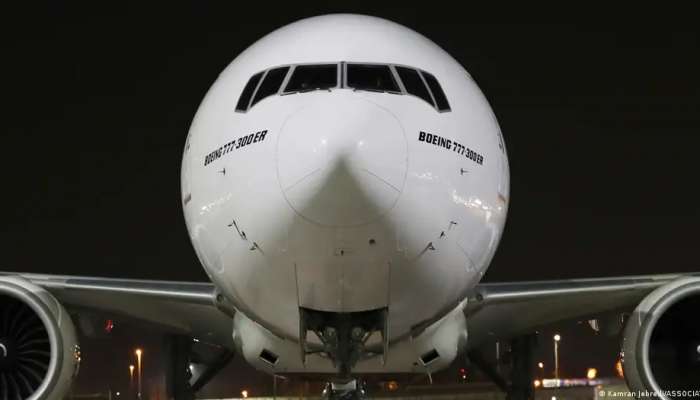
Amsterdam: A Boeing 777 aircraft, intended to reach Rio de Janeiro in Brazil, turned around and landed back in Amsterdam's Schiphol Airport shortly after takeoff on Sunday, reporting an unspecified technical issue.
Flight KLM705, operated by Dutch airline KLM, landed safely. A spokesperson for Dutch air traffic control said the plane requested to land as a precaution and turned around over Belgium some 40 minutes after takeoff. The nature of the technical problem was undisclosed.
The airline said the safety of passengers and crew were never at risk. The passengers would be flown to Rio de Janeiro on another aircraft on Sunday.
The incident comes at a time when the US aviation giant Boeing is experiencing a series of safety issues, with its CEO Dave Calhoun announcing he will step down by the end of the year.
The company has been particularly beset by safety issues involving its 737 Max-9 aircraft. In January, a door plug ripped off an Alaska Airlines 737 Max-9 flight about 16,000 feet above the ground.
Boeing has since faced heavy scrutiny from US regulators, and authorities curbed production while the company attempts to fix safety and quality issues.
In March, some 50 people were injured when a 787 suddenly dropped mid-flight. Last month, a Singapore-bound Boeing 777-300ER carrying 211 passengers from London hit sudden turbulence over the Irrawaddy basin, forcing the pilot to divert the flight to Bangkok. One passenger died as a result.
But these and other mid-air emergencies pale in comparison to two Boeing MAX 8 aircraft which crashed in 2018 and 2019, killing 346 people and prompting a worldwide grounding of all MAX 8 and MAX 9 planes that lasted nearly two years.
In 2018, a Lion Air Boeing 737 Max plane in Indonesia crashed, killing 189 people. A year later, the Ethiopian Airlines Boeing 737 Max crashed soon after takeoff from Addis Ababa, killing 157 people. While multiple factors contributed to both tragedies, both of those crashes were linked to the plane's Manoeuvring Characteristics Augmentation System (MCAS), which is designed to automatically push the plane's nose down if it detects a danger of stalling.
Multiple whilstleblowers have also come forward, alleging risks in the plane production process. Processing of these initiatives has been complicated by two recent deaths. In March, a Boeing former employee who had recently been giving evidence against the company in a whistleblower suit died of what police later said was a self-inflicted gunshot wound. In late April, another whistleblower passed away after a short illness, after coming down with a fast-spreading infection and developing pneumonia.